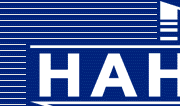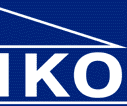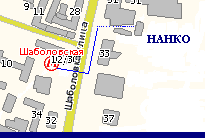

|
|
“NANKO Co. Ltd.” has been successfully working in the Russian market since 1991. Our company specializes in development, assembling and maintenance service of protection, automation and control systems based on our own originally developed equipment and software of the following types:- fire protection;- access control systems;- video viewing and perimeter protection;- object protection and security control devices;- control over production process and supply services (energy, heat and water supply, ventilation and conditioning etc.);- telephony and selective communication;- structural and information cable network ( computer network, digital communication, TV and etc.)Modular design approach allows our company to develop not only individual systems of any configuration, but to join them into a unified complex. The complex provides data readout of its every subsystem’s operation and parameters and controls them too.Our production is developed with the use of components made by foreign manufacturers. It provides high reliability and moderate price of our equipment in comparison with foreign counterparts.Scientific potential and professional skills of our design engineers and programmers enable our company to integrate its production into the systems of the leading foreign and domestic manufacturers. It’s especially important if You have already had such systems installed at Your unit and wish to improve them.“NANKO Co. Ltd.” offers wide variety of services such as:· whole range of works from engineering to “turnkey” building;· warranty and out-of-warranty service;· consulting and technical support;· staff-training.Modern industrial units as well as dwelling houses and offices are highly saturated with complex engineering equipment. Today a growing number of uses are being found for the new technologies such as access control and video viewing, fire and intruder alarm, fire extinguishing, computerized systems of control over production process and those of public utilities.The problem of keeping such a complex infrastructure operating, its monitoring and control are of great importance nowadays. The optimal way to solve this problem is creating a united complex that could coordinate and control the operation of these systems.Specialists of “NANKO Co. Ltd.” have developed a new Dispatching-and-Monitoring complex. This complex integrates technical arrangements of unit protection (fire and intruder alarm, access control system, video viewing), computerized systems of production process control and those of public utilities control (ventilation, heating, water supply, conditioning etc.) into a united system on the basis of controllers and concentrators*.Data related with operation of the systems and their parameters are displayed on the operator’s monitor in a perception-comfortable way (such as animation, active mnemonic diagrams, oscillograms etc.). The complex works in line-operated mode as well as in self-contained one.Modular approach to the design of the Dispatching-and-Monitoring (DMC for short) enables our company to develop systems of any configuration according to the customer’s requirements as well as to integrate our production into the systems of the leading foreign and domestic manufacturers. The essential feature of integrated systems is that their subsystems work in coordination. They cooperate and share information with each other, which provides top-efficiency.The proposed complex can be applied at any unit ranging from a workshop to a plant, from a single building to a whole urban district or a town.The production process control complex based on an instrumented control systems.An instrumented control system is an electrical, electronic, or programmable electronic system (E/E/PES) which may perform some or all of the following functions:
These functions are normally provided by, alarm, protection (trip, interlocks and emergency shutdown), and process control systems.Advantages of the complex are the following:· easy in installation and adjustment;· unauthorized access immunity;· good visual layout;· capability to integrate systems of any configuration and complexity;· controller reprogramming capability;· multifunctional expansion capability;· scalability (further expansion through integration into a united system including new units);· user-friendly interface, which is designed especially for Users. Users are given the opportunity to lay out, expand and adjust the system in accordance to their current aims and purposes;· software of SCADA class;· special hardware and software for any devices communication;· through drivers the system operates with the equipment made by ADEMCO, Apollo, etc.;· capability to transfer data using any of up-to-date communication facilities such as telecommunications, cable TV, Internet and Intranet, trunking systems etc.;· moderate price in comparison with foreign counterparts.In practice the complex approach based on automation and dispatching of life support systems provides reducing costs on energy carries and maintenance service from 20 to 40%.Within the Dispatching-and-Monitoring complex our experts have developed:· multipurpose controllers and concentrators “NANKO”;· relay control units;· video input cards for 6, 8, 12, 16 video cameras;· data display panels and control boards;· software operating within Windows 95/98/NT/2000/XPTHE SYSTEM OF HEATING AND WATER SUPPLY
Automation system of heating and water supply provides:
The subsystem of scheduling of cold water supply provides: · technological and emergency the signal system about work of pumps, switching of the last on a reserve;· the account of a service life, automatic input of a reserve;· the signal system about excess of limiting values of pressure and temperatures in controllable points;· the data on temperature, pressure and the charge in control points;· management of pumps from a control office;· the commercial account of the consumed water on each consumer and on all system. |
|
 |
NANKO Co. Ltd.Moscow, metro Shabolovskaya, Shabolovka street, 31-1Mail : 119331, Moscow , box 64Tel/fax: +7 (095) 232-33-29http://www.nanko.ru/ E-mail: nanko@nanko.ru
|
